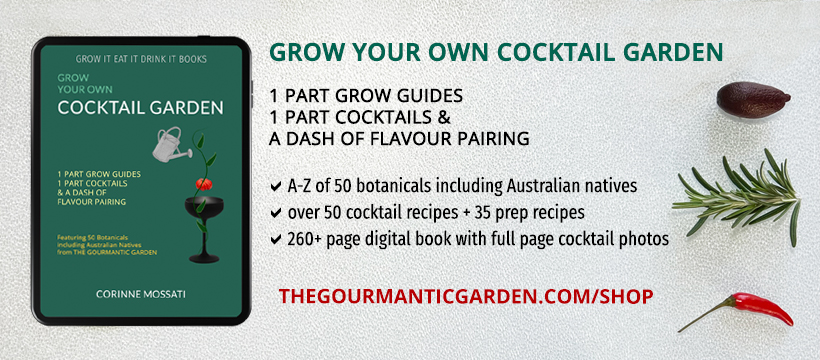Next in our Essential Guides series, we take a look at tinctures, how to make them and how to use them in cocktails.

What is a Tincture
A tincture is a concentrated alcohol infusion made by steeping a herb, spice, fruit, flower or vegetable in high proof alcohol. Tinctures enhance the flavour of a cocktail and can also be used as an aromatic spray to add scent to a cocktail.
Difference between a Tincture and Bitters
A tincture is a concentrated alcohol infusion, a singular aromatic or flavour used to enhance a cocktail, such as black pepper tincture. Bitters contain a bittering agent and have multiple ingredients. As such, they have a combination of different flavours, for example, orange bitters can contain a range of citrus peel, spices, leaves and roots. In short, a tincture is a single aromatic or flavour.
How to Make Tinctures
Tinctures are made by simply infusing a spice, herb, peel, fruit or other flavourings into a high proof neutral spirit such as vodka or neutral grain spirit.
What you need:
- small glass jar with lid
- small glass bottle with a dropper
- a spice, herb, peel, fruit, or other flavouring
- high proof neutral grain spirit
- cheesecloth
- strainer
To make a tincture, simply fill the jar approximately halfway with the botanical that you’re infusing. Add the alcohol and make sure it more covers the dry ingredient. Seal the jar, shake it well and store in a dark, cool spot occasionally shaking the content. Taste on a daily basis. Once the tincture is ready, strain using a fine strainer lined with a cheese cloth, pour into a dropper bottle and label it.
10 Tips for Making Tinctures
- The length of infusion depends on the proof of the alcohol you use and the base botanicals. The higher the proof, the faster the infusion and the more flavour and essential oils are extracted.
- When making a citrus-based tincture, avoid using the pith as it imparts a bitter element.
- Dried botanicals yield a stronger tincture than fresh botanicals.
- As a general rule, when using fresh herbs, fill the glass jar two third or three quarters of the way then top with alcohol. For dried herbs or tea, fill the glass jar half way to three quarters as these will expand in the liquid.
- While neutral grain alcohol or high-proof vodka (50% and over) work well, you can experiment with other spirits such as brandy, rum or bourbon.
- For a spice-based tincture, toast the spices before use to enhance their flavour and accentuate the essential oils.
- When using herbs, chop them to release more of the essential oils.
- A fresh herb tincture may take a few hours to infuse while a spice tincture may take days or longer. Taste as you go for best results.
- Use a coffee filter or a cheesecloth to strain the tincture to extract as much as of the solid as possible. Leftover solids can alter the flavour over time.
- Store the tincture in a dark glass dropper bottle in a cool, dark place to extend its shelf life.
How to Use Tinctures in Cocktails
Tinctures are powerful modifiers and impart a concentrated single note flavour so use them sparingly. A drop or two of a tincture is usually sufficient to add flavour to a cocktail. Tinctures can be mixed into cocktails, floated on top of a drink such as in a Martini or G&T or used in a spray atomiser to give a heightened aroma to the drinking experience.
Next… How to Make Australian Native Tinctures
Photo by Cocktails & Bars – © Copyright: All rights reserved.

